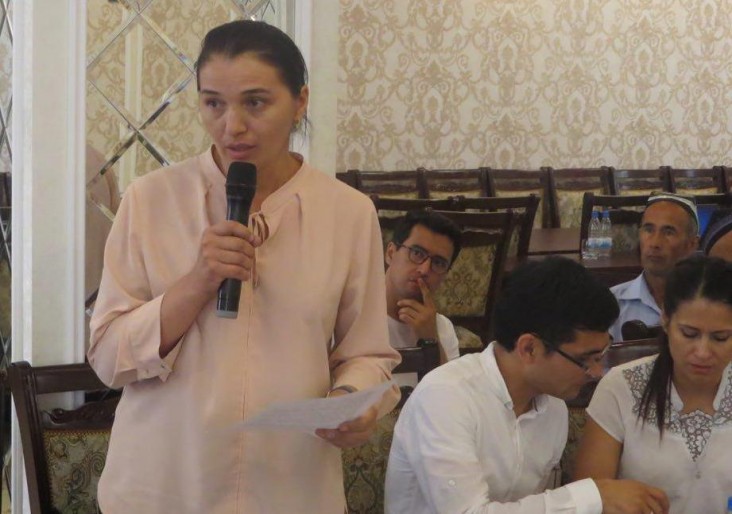Speeches Shim

USAID’s Judicial Reform in Uzbekistan Program supports development of the new Law on NGOs
“The new law will expand our opportunities to work with the population, the youth, and the vulnerable people. The simplified requirements will create a truly enabling environment both for the existing and newly initiated NGOs, which will impact overall development of civil society in Uzbekistan.”
Civil society in Uzbekistan remains weak and restricted. Its principal segment, non-governmental organizations (NGOs), is over-regulated with only a few active players. Acknowledging the key role civil society can play in supporting on-going reforms and providing services to vulnerable groups, the Government of Uzbekistan has declared a firm commitment to the development of the NGO sector by creating a new enabling environment. The USAID-funded Judicial Reform in Uzbekistan Program (JRUP) is backing this initiative by supporting the development of a new Law on NGOs, which has been drafted and submitted to the Parliament.
The proposed legislation will replace a set of outdated laws and bylaws adopted in the 1990s, which aim primarily to restrict and control NGOs; an environment very few organizations have been able to survive. NGOs encounter challenges from the outset with a lengthy and bureaucratic registration process. If formal registration is granted, the NGOs’ activities are impeded by an overwhelming amount of paperwork and cumbersome mandatory reports to the authorities.
The new law significantly simplifies the requirements to establish and operate an NGO by cutting the timeline for registration from three months to ten days and lowering the registration fee. In addition, the required number of founders will be reduced from ten to five and onerous reports will be replaced by simpler, time-efficient electronic reports.
Barqaror Hayot is one of the few well-established, successful NGOs in Uzbekistan. The NGO assists victims of human trafficking and former prisoners with rehabilitation and re-integration into normal life, supports anti-human trafficking efforts and prepares labor migrants to adapt to working abroad. Barqaror Hayot’s director Oliya Ilmuradova is enthusiastic about the new law: “The new law will expand our opportunities to work with the population, the youth, and the vulnerable people. The simplified requirements will create a truly enabling environment both for the existing and newly initiated NGOs, which will impact overall development of civil society in Uzbekistan.”
Development of the law was a progressive step forward for the Government of Uzbekistan, and its adoption will be another revolutionary breakthrough in creating a strong and vibrant “third sector” in the country. Uzbek NGOs are optimistic about their future, as is the state.

Comment
Make a general inquiry or suggest an improvement.